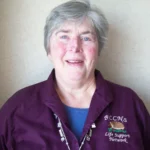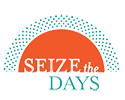From Breast Cancer to Supporting Other Women Facing Cancer

Rochelle Shoretz was first diagnosed with breast cancer at age 28, and then with stage IV breast cancer at age 37. She is the founder and executive director of Sharsheret, a national non-profit organization that provides support and resources to young Jewish women and their families facing breast cancer. Despite the sadness her experience with cancer may have brought her loved ones, Shoretz says cancer gave her an opportunity to do what she loves.
Watch
Transcript
My name is Rochelle Shoretz. I am 39 years old and I was diagnosed with stage 2 breast cancer when I was 28 years old and stage 4 breast cancer when I was 37 years old. I am the founder and the executive director of Sharsharet, which is a national organization that provides support and resources to young Jewish women and their families facing breast cancer.
I started Sharsharet, not really as an organization, but really as an opportunity to collect other young women who were experiencing some of the same issues that I was facing, and specific to the Jewish community, which is at increased risk of hereditary breast cancer and ovarian cancer. I think a lot about the sadness that I think my children and my parents might feel given the circumstances of my treatment and the fact that I’m living with a chronic illness.
But when I reflect on my own life, I really believe that because of what I’ve done with cancer, I’ve had it all. I think that cancer has really given me an opportunity to find what I love about my skills, what I really enjoy doing, and put it to an amazing cause. I spend a lot of time outdoors since my diagnosis.
I think that to me is probably the greatest physical change in my life other than the fact that I’m often at the hospital. I love running, I love biking, I love swimming. So there’s just a lot of my life that revolves around being outdoors and connecting to things that are bigger than I am. I get a great sense of satisfaction and appreciation for life being outdoors and living it.
There are a lot of patient advocates who are working in the not for profit sector, and sometimes our work feels small compared to the impact that we would love to be able to make. But the truth is, at the end of the day, all of our smaller efforts combine to a very powerful force in the cancer community.
We have a strong voice together. And that is a part of the cancer journey that I really didn’t understand before I became a piece of it. We feel small, but the truth is our impact is great, and I feel very privileged to be a part of that voice.






